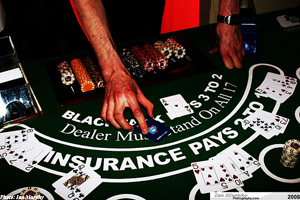by John Horvat II.
The current climate of scandals streaks across the political landscape of the nation like a tornado that leaves a trail of devastation in its wake. However, unlike a tornado, this is not a chance happening that appears upon the scene but rather an uncovering that reveals a disturbing rottenness.
What we see from the open wounds of these scandals is a systemic problem that threatens the health of the nation. We are reminded of a kind of cancer since it permeates the whole social body and now advances openly and cynically before all.
The details and circumstances behind all the scandals are still developing. However, beyond the media hype and finger pointing, what is at work here is a clash of values that is hardly new. Throughout history, two sides, two economic outlooks, two lifestyles have long stood opposed to one another as if engaged in constant combat. Our present political climate is but a tragic episode of this fight between these two perspectives.
 On one side, we find a rule of money with a set of secular values, which include quantity, function, efficiency, and utility. Under this rule, everything tends to be reduced to terms of self-interest, matter, and production. It gives rise to what can be called the “frenetic intemperance” of furious economic activity that bulldozes over cultural, social and religious values that stand in the way of “progress.”
On one side, we find a rule of money with a set of secular values, which include quantity, function, efficiency, and utility. Under this rule, everything tends to be reduced to terms of self-interest, matter, and production. It gives rise to what can be called the “frenetic intemperance” of furious economic activity that bulldozes over cultural, social and religious values that stand in the way of “progress.”
On the other side, we find another rule with its own set of values, which is a rule of honor. This rule attaches great importance to excellence, virtue, charity and integrity. It conveys the idea of values that cannot be bought and sold. It injects balance, tranquility and psychological well-being into society and economy.
When honor rules, institutions are zealous of their reputation, families uphold their names, and culture flourishes. When the rule of money holds sway, principles and convictions erode, the media reign supreme, and character and culture decay.
What we are seeing today is the twilight of the rule of honor. Even the thin veneer of honor is being torn away. The fight has reached a dangerous tipping point where the notion that the end justifies the means prevails. There is abuse of power and a subsequent abandonment of responsibility. This can also be seen in society in general as today’s postmodern “mass man” embraces entitlement and immerses himself in our vast virtual networks for direction and stimulation.
The present scandals are not the cause of this twilight. Rather they are only telltale signs of the latest advance of this cancerous growth that so corrupts the body politic. They should serve as a wake-up call for a return to order.
Such a return is not only possible but probable given that people are looking for order in the face of the rule of money’s descent into disorder. In my book, Return to Order: From a Frenzied Economy to an Organic Christian Society—Where We’ve Been, How We Got Here, and Where We Need to Go, I suggest ways in which a rule of honor might be restored.
One way is to reignite the debate around the principles, ideas, and moral values found in our Christian roots. If we return to this wellspring from which we came and boldly proclaim these values, the rule of money bat-like takes flight before the blinding truth.
This is because when guiding principles govern conduct, money cannot buy loyalty. When society is blessed with a rich and balanced intellectual life, it adopts honor’s set of spiritual values more easily and rejects today’s crass materialism. When society has morals, money returns to being a means and not an end.
 But just values are not enough, there must be those, even if they be few, who embody those values. The rule of honor needs to be restored by cultivating a generation of heroes to step up to the plate and lead. These true elites become what sociologists call representative characters that can interpret and put into action the needs of their communities. They are in a natural position to preserve, defend, and spread those Christian principles, ideas, and moral values needed to defeat the rule of money and return honor to its rightful place.
But just values are not enough, there must be those, even if they be few, who embody those values. The rule of honor needs to be restored by cultivating a generation of heroes to step up to the plate and lead. These true elites become what sociologists call representative characters that can interpret and put into action the needs of their communities. They are in a natural position to preserve, defend, and spread those Christian principles, ideas, and moral values needed to defeat the rule of money and return honor to its rightful place.
In crises past, these characters have always naturally arisen in American society. We can identify those famous statesmen, generals, religious figures, professors, businessmen, and so many others who embodied and distilled the values needed for the occasion. We must welcome representative figures once again and reject today’s unrepresentative characters found in media stars and celebrities.
 Some might object that such measures are impossible in face of this terrible twilight. Such objections naturally flow from the rule of money where all is calculated in ledgers and numbers. But historically, it has always been in times of crisis that honor appears most attractive. We should not be deterred by the obstacles. We should rather rise to the challenge.
Some might object that such measures are impossible in face of this terrible twilight. Such objections naturally flow from the rule of money where all is calculated in ledgers and numbers. But historically, it has always been in times of crisis that honor appears most attractive. We should not be deterred by the obstacles. We should rather rise to the challenge.


